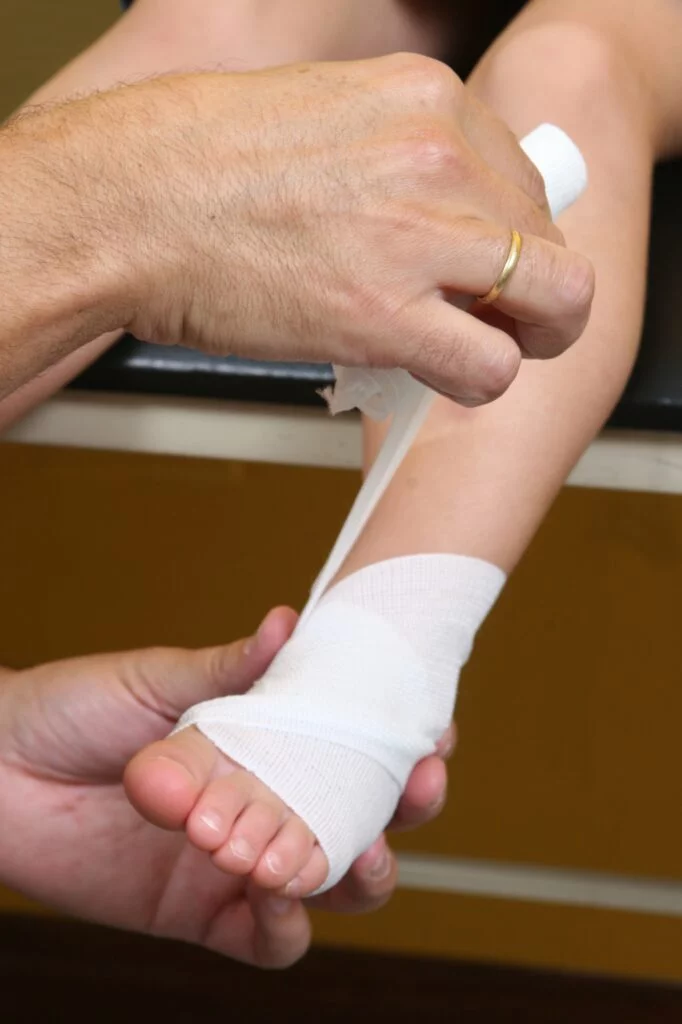Table of Contents
Introduction
Shoulder pain can make even basic daily activities an uncomfortable experience. You don’t realize just how active your shoulder can be until it hurts when you move it!
What Causes Shoulder Pain?
Most conditions that cause shoulder pain fall into one of four general categories:
- Arthritis
- Fracture (broken bone)
- Instability
- Tendon inflammation and/or tears
Other potential causes of shoulder pain exist, but they tend to be less common. These include conditions such as tumors and nerve damage.
One of the common threads binding these various injuries and conditions is one simple fact: if you’re experiencing shoulder pain, it’s a problem that needs to be addressed! Whether you feel pain all of the time, only when you move your shoulder, or the pain seems to come and go on its own whims, the problem should be diagnosed and treated by an orthopedic specialist – sooner rather than later.
How the Shoulder Works – And Where Pain Can Develop
The shoulder is a very mobile joint. In fact, it’s more correct to say that what is commonly referred to as “the shoulder joint” is several joints functioning as a single unit. These joints are made up of – and supported by – various bones, muscles and tendons.
The shoulder is made for mobility, but it can come at a cost. Increased mobility means an increased risk of instability or soft tissue damage. These can contribute to both sudden injuries and chronic pain in various locations.
There are essentially three major bones that are part of the shoulder:
- The shoulder blade (scapula)
- The collarbone (clavicle)
- The upper arm bone (humerus)
The shoulder blade has a rounded socket (the glenoid), and this is where the upper arm bone connects. It is kept centered in the shoulder socket by a team of muscles and tendons called the rotator cuff. (This is the same rotator cuff you might hear frequently mentioned in sports injury reports – especially for baseball pitchers, football quarterbacks, and other athletes who specialize in throwing.)
As mentioned earlier, the majority of shoulder problems stem from a handful of general root causes. Let’s take a closer look at these and how they factor into potential causes of shoulder pain.
Arthritis

Many different forms of arthritis exist, but they all share a common tendency to cause pain and swelling in joints. In the case of shoulder pain, however, the most common cause is osteoarthritis.
Osteoarthritis is the type of arthritis people typically imagine when they hear the term. This is the “wear and tear” variety that occurs as joint linings break down and bone starts to rub against bone.
Arthritis can have a slow, lengthy onset – along with pain that increases in severity over time.
Since arthritic joints tend to hurt more with movement, many people respond by moving less. This can lead to a bigger problem, however, as can increase stiffness and tightness in the shoulder joint. Movement becomes even more painful and the cycle continues.
So, although it may seem counterintuitive, one measure for treating shoulder pain from arthritis is a physical therapy program centered around appropriate stretching and strengthening exercises.
Other forms of treatment will depend on the nature of the condition and are prescribed on a patient-by-patient basis. When conservative care isn’t sufficient, we may recommend joint replacement surgery.
Fractures
A fractured shoulder bone is another common cause of shoulder pain. This injury can affect any of the three bones we identified earlier.
Typically, when younger patients fracture a shoulder bone, the root cause is an acute traumatic injury – such as a sporting injury or from an auto crash. Older patients may also suffer fractures in these ways, but are also more susceptible to fractures from general falls.
Treatment for a shoulder fracture typically depends on the severity of the injury. The body will often perform the heavy lifting of mending broken tissue, but we will take appropriate measures to stabilize the parts so they heal correctly.
For less severe breaks, we may prescribe a basic sling to be worn for anywhere from a couple weeks to a couple months. With more severe fractures, surgery may be necessary.
Instability (Dislocations)
When the head of the upper arm bone is forced out of the shoulder socket as the result of a sudden injury or overuse, the shoulder becomes unstable.
This instability can cause dislocation of varying degrees:
A partial shoulder dislocation (subluxation), in which the ball of the upper arm bone comes only partially out of the socket.
A complete dislocation, in which the ball has been forced entirely out.
In either situation, muscles and connective tissues can loosen or even tear. This can lead to easier and more frequent dislocation in the future – along with unsteadiness, pain, and potentially arthritis if given enough time.
Treatment for a dislocated shoulder first means maneuvering the arm bone back into place. It is best to have a trained medical specialist do this to make sure the bone is correctly and securely back in the shoulder socket. A sling will likely be needed for at least a couple of weeks as the injury heals.
If shoulder dislocation becomes a recurring problem, surgery might be recommended to address the issue.
Tendon Inflammation and Tears
Overuse injuries from repetitive tasks are a leading cause for shoulder pain. In these cases, the pain is the result of either tendonitis (tendon inflammation, such as that seen in Achilles tendonitis), or bursitis (bursa inflammation).

Tendonitis
The most commonly affected tendons in the shoulder are the four located in the rotator cuff, along with one of the tendons connected to the bicep.
When the tendons of the rotator cuff are inflamed, there is less space for other tissues to move within the joint. This increases pressure on the tissues and can result in the tendons scraping against bone, also known as “impingement.” This often occurs when the arm is lifted away from the body.
Tendon Tears
When a tendon is severely damaged or degenerates over time, it has a higher chance of splitting or tearing.
Tendon tears can either be partial or complete. In a complete tear, the tendon has fully separated from its attachment to the bone.
The most common injuries that can lead to tears in the shoulder tendons are rotator cuff and bicep injuries.
Bursitis
A bursa is a small, fluid-filled sac that acts as a natural cushion and is typically located between tendons and bones. Bursae reduce friction, allowing tendons and bones to glide more easily within a joint.
Sometimes, bursa inflammation will cause impingement, resulting in the tendons becoming weakened or torn.
Excessive shoulder use can contribute to bursitis between the top of the shoulder blade (acromion) and the rotator cuff. This is known as subacromial bursitis. When there is tendonitis in the rotator cuff, there is a chance that bursitis can develop with it.
Rest is highly recommended for both bursitis and tendonitis. We will discuss specific positions and activities to avoid or reduce during recovery. Depending on the severity of the injury and other factors, we might also prescribe cortisone injections and specific stretches and exercises.
In some cases, we may also recommend Class IV Laser Therapy to relieve pain and accelerate the healing of soft tissues.
Get Rid of Shoulder Pain with Orthopedic Care
If shoulder pain is disrupting your normal, daily activities – and home care is not helping – it’s time to see our team at Premier Podiatry & Orthopedics. We specialize in treating orthopedic injuries of all kinds, ranging from shoulder pain to knee and hip pain.
Our offices in Carmichael and Roseville will be happy to hear from you. Call us at (916) 961-3434 or fill out our online contact form if you prefer to reach us electronically instead.
Testimonials
Looking to schedule an appointment with a physician?
Schedule an appointment with us by calling (916) 961-3434 or by clicking the button below to begin requesting your appointment today!


